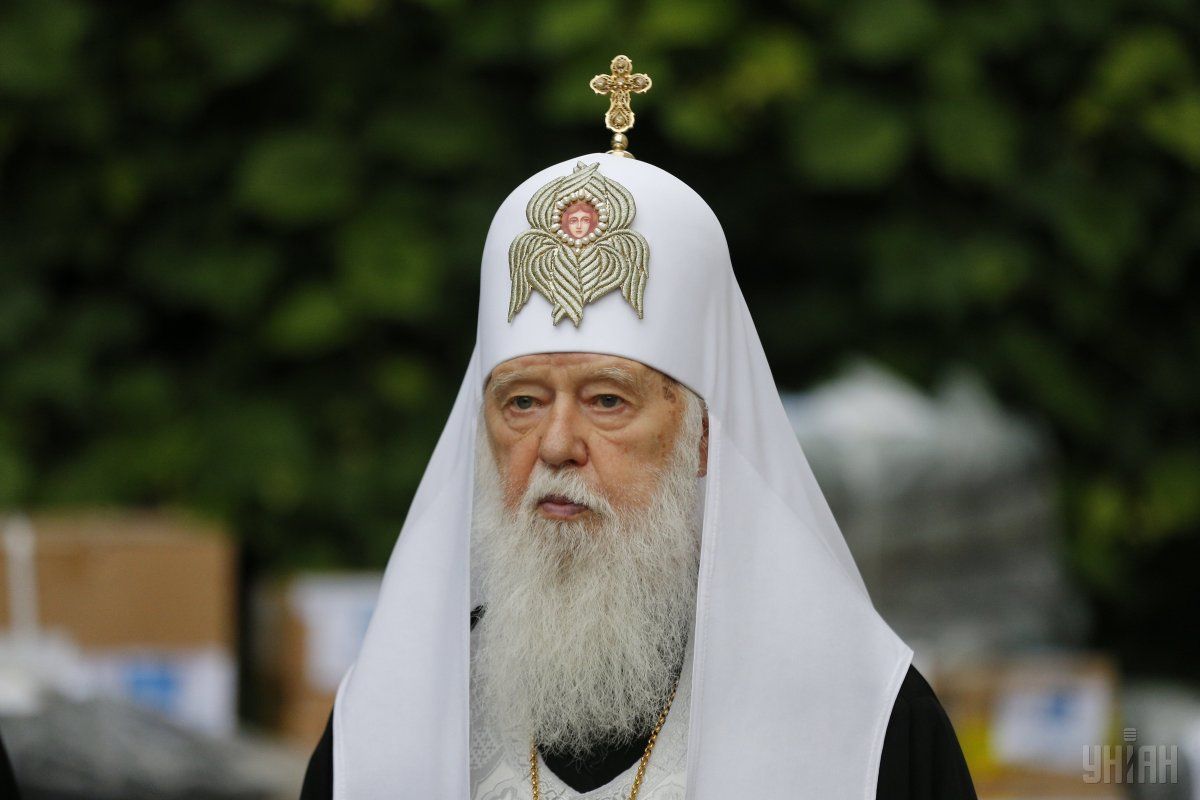
But more than a quarter of a century after he led a split of the Ukrainian church from its Russian parent following the Soviet Union's collapse, Ukrainian Patriarch Filaret, now 89, is close to achieving his dream of an independent national church.
And he is ready to lead it, Reuters reported.
Divisions between rival Orthodox factions have sharpened in Ukraine since Russia's annexation of Crimea in 2014 and the outbreak of Russian aggression in Donbas, eastern Ukraine.
For President Petro Poroshenko, establishing an independent church is a way of blunting Moscow's influence in Ukraine. If he pulls it off, it would also likely boost his chances in a tight re-election race next March.
For that to happen, Ukraine needs the formal backing of the Ecumenical Patriarch in Turkey, the global spiritual head of Orthodox Christians.
Filaret said Ukraine could be weeks away from achieving its goal despite fierce opposition from Moscow, and that a synod in Istanbul would approve autocephaly latest by the end of this year. The Russian Orthodox Church has already protested by breaking off ties with Istanbul in September.
"I do not see any obstacles to getting the Tomos," Filaret told Reuters, referring to the formal announcement that would grant the Ukrainian church "autocephaly," or independence.
"It would mark the end of a strange journey for Filaret, who was once a frontrunner to head the Russian Orthodox Church but switched tack to campaign for an independent Ukrainian church as the country won independence from Moscow," Reuters said.
His branch initially struggled for recognition but has grown in strength and enjoyed the support of successive presidents. He denies allegations of impropriety or working as a secret agent for the KGB [accusations brought by his opponents], though he said under the Soviet system the clergy was forced to have contacts with the secret police.
Not shy of wading into politics, he threw his support behind "Orange Revolution" protesters in 2004 against Russia's choice of president, Viktor Yanukovych.
During the Maidan street protests that eventually toppled Yanukovych in 2014, his church offered shelter to injured demonstrators. He says Ukraine's place was in Europe, not under President Vladimir Putin's Russia, and has urged the West to keep sanctions on Russia.
"Putin wants to return to the past, to the period when empires existed," Filaret said in an interview.
"But the period of the empires is over. We have already entered a period of globalisation while Putin wants to remain in the period of empires."

